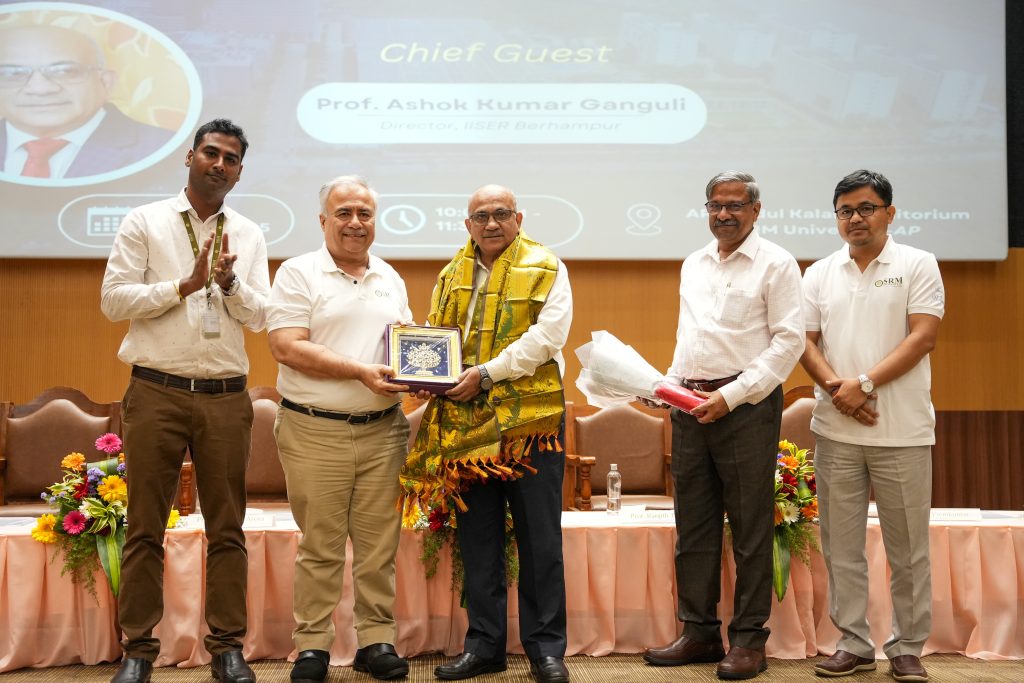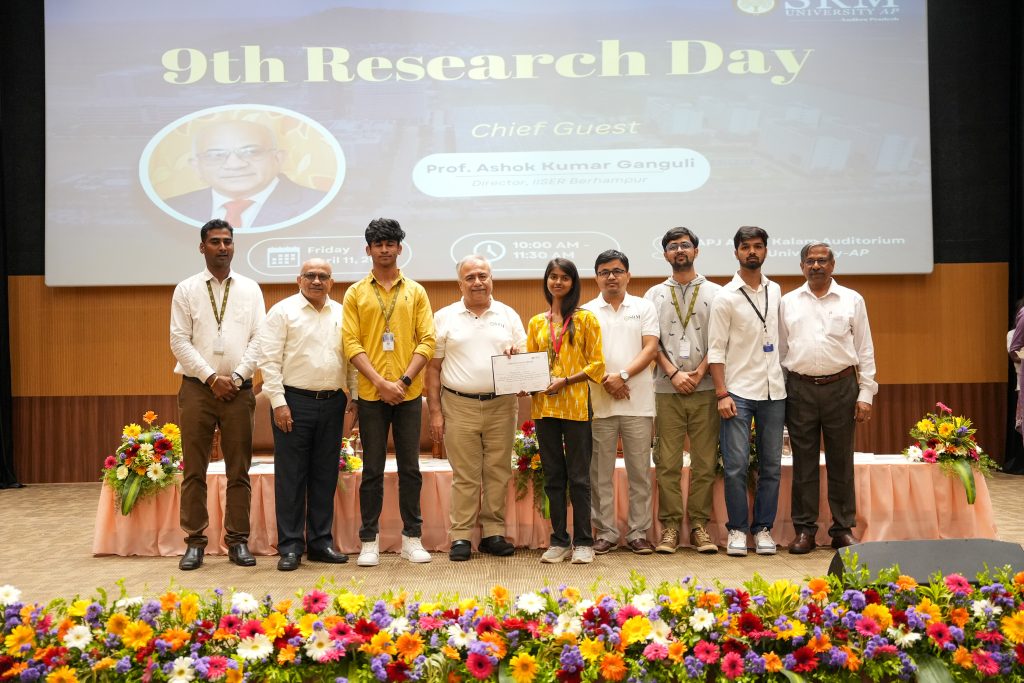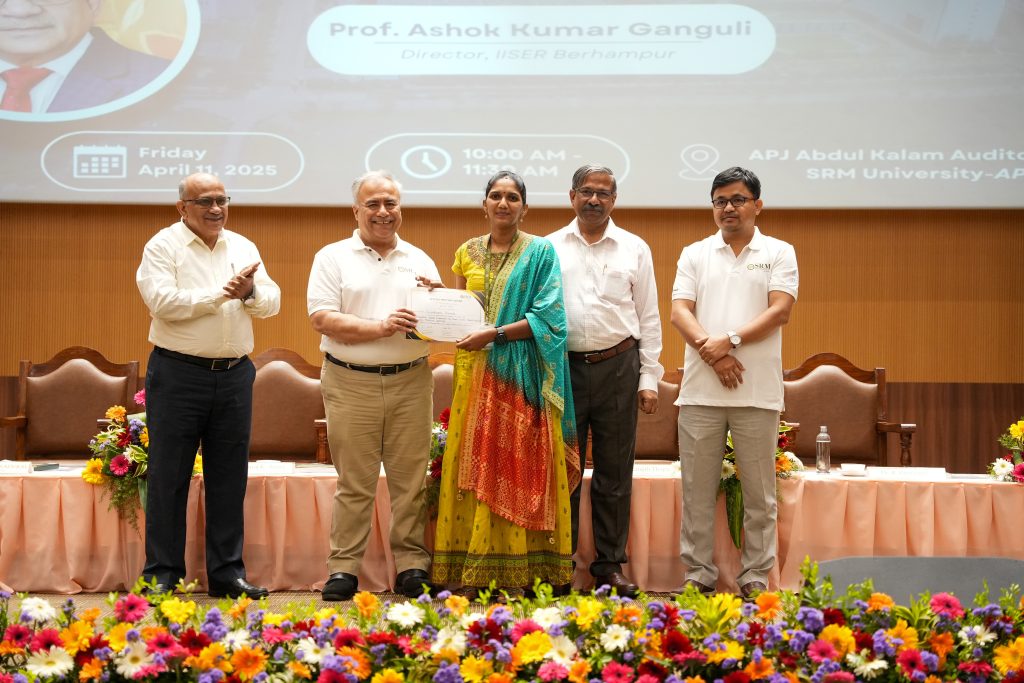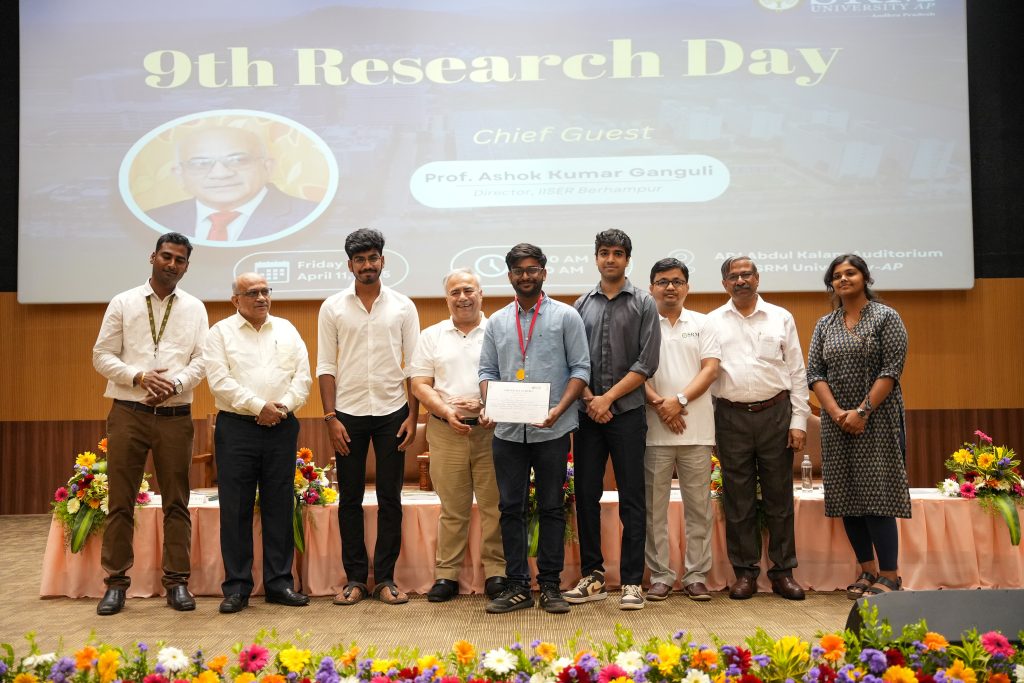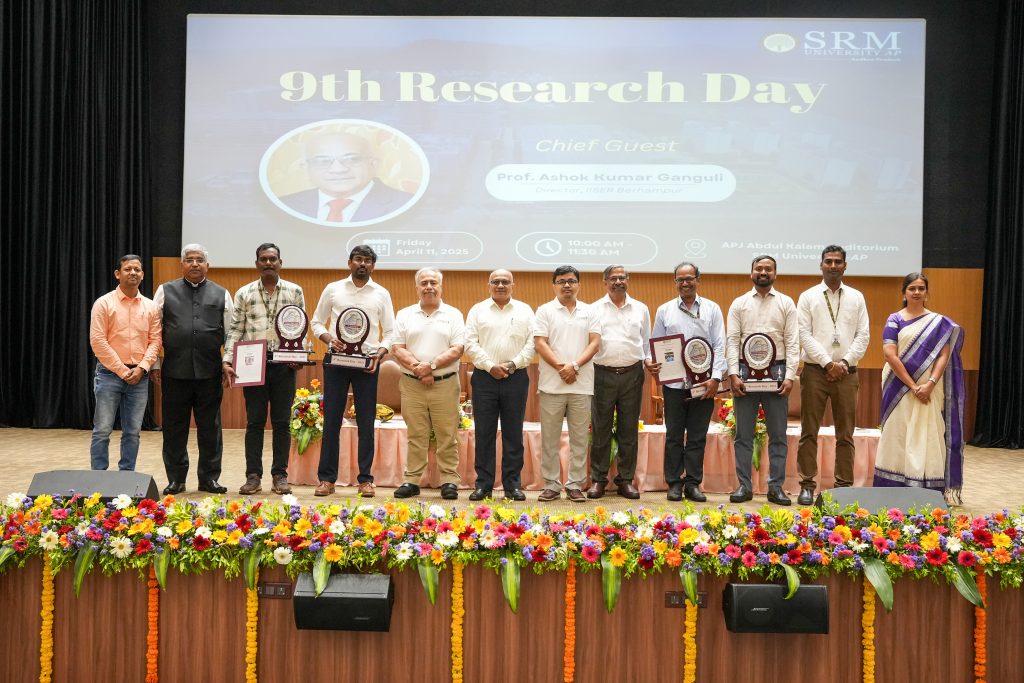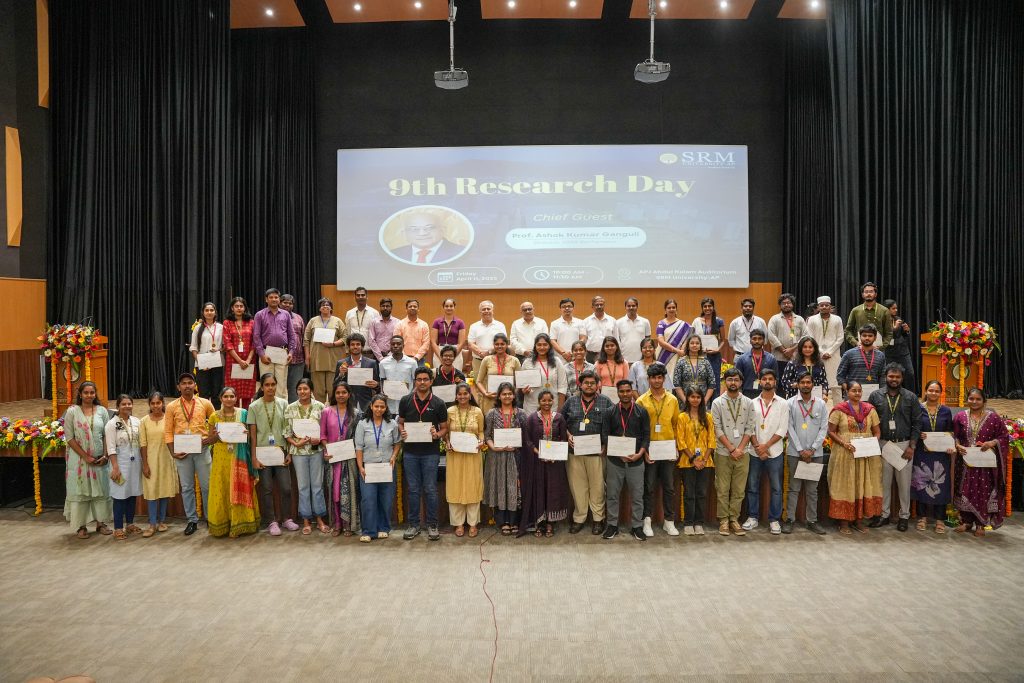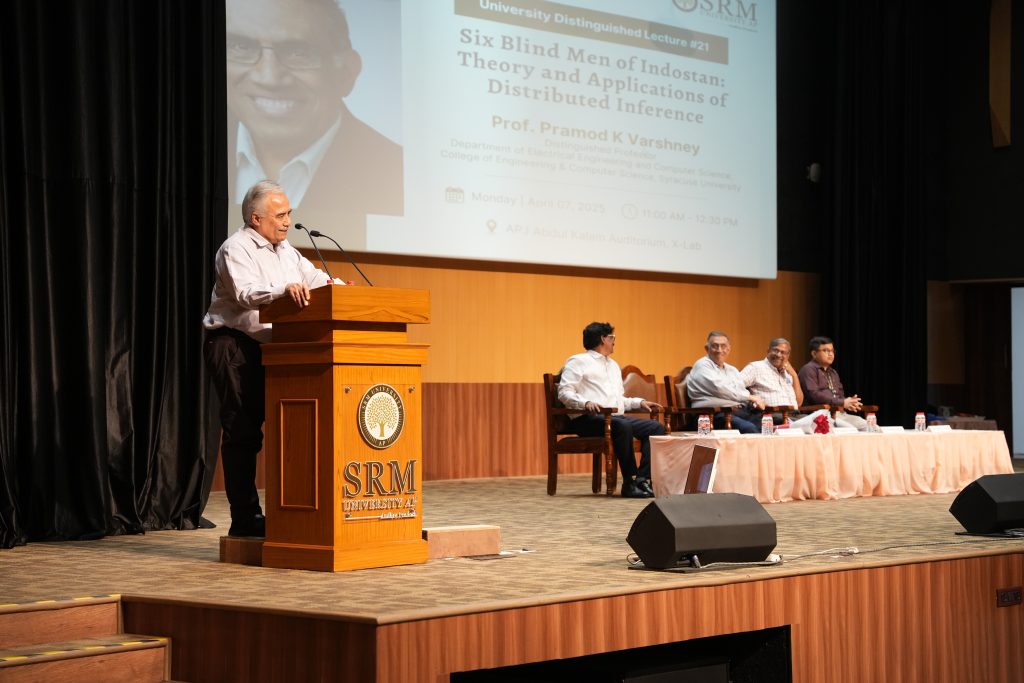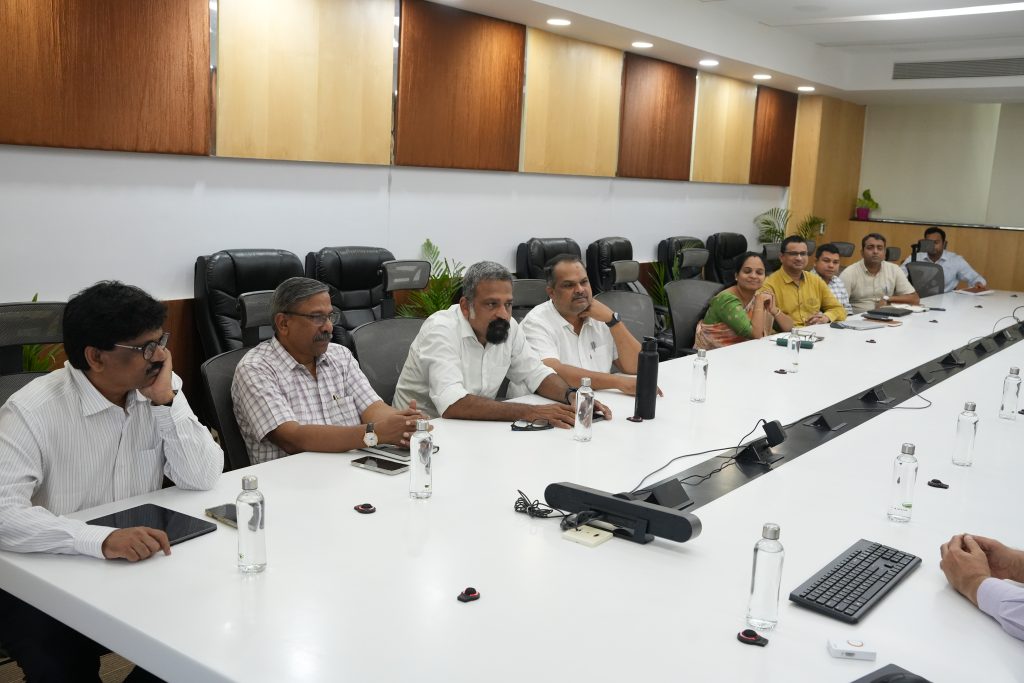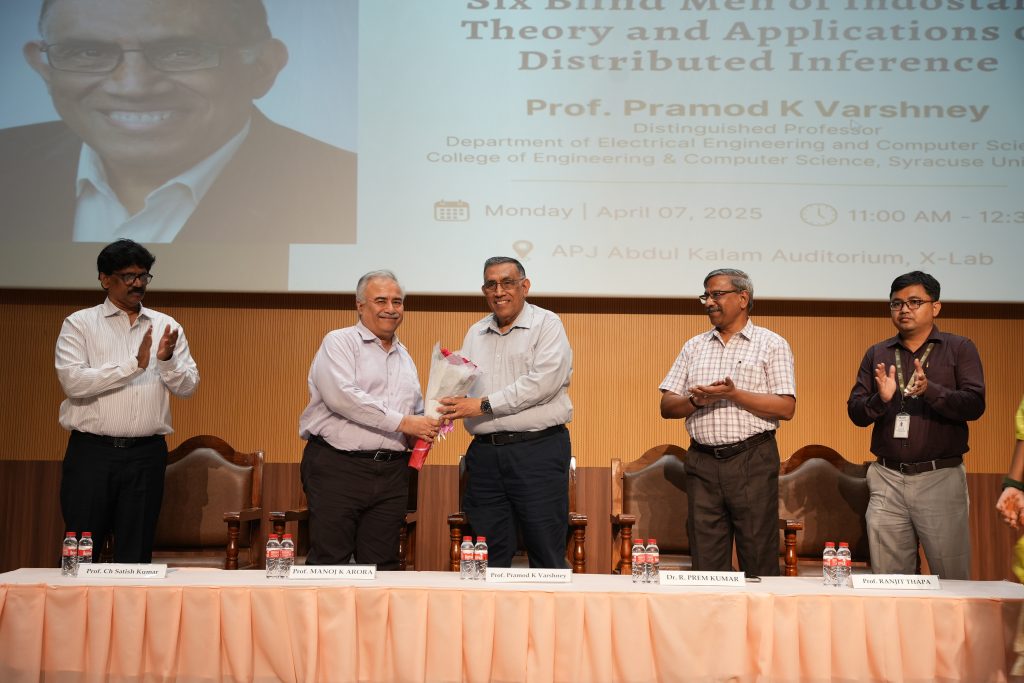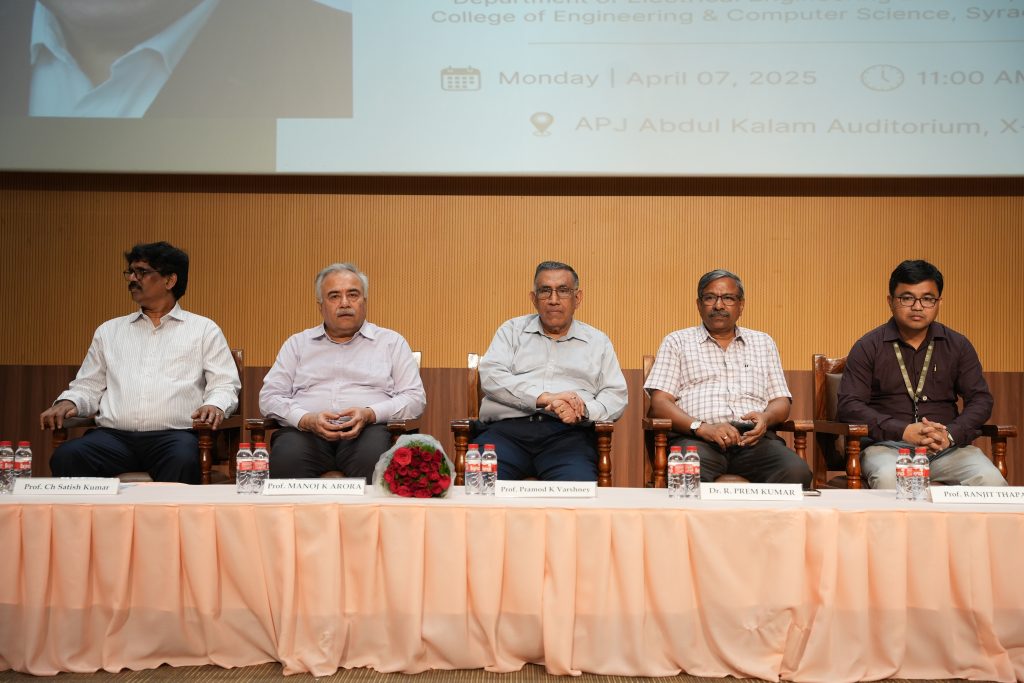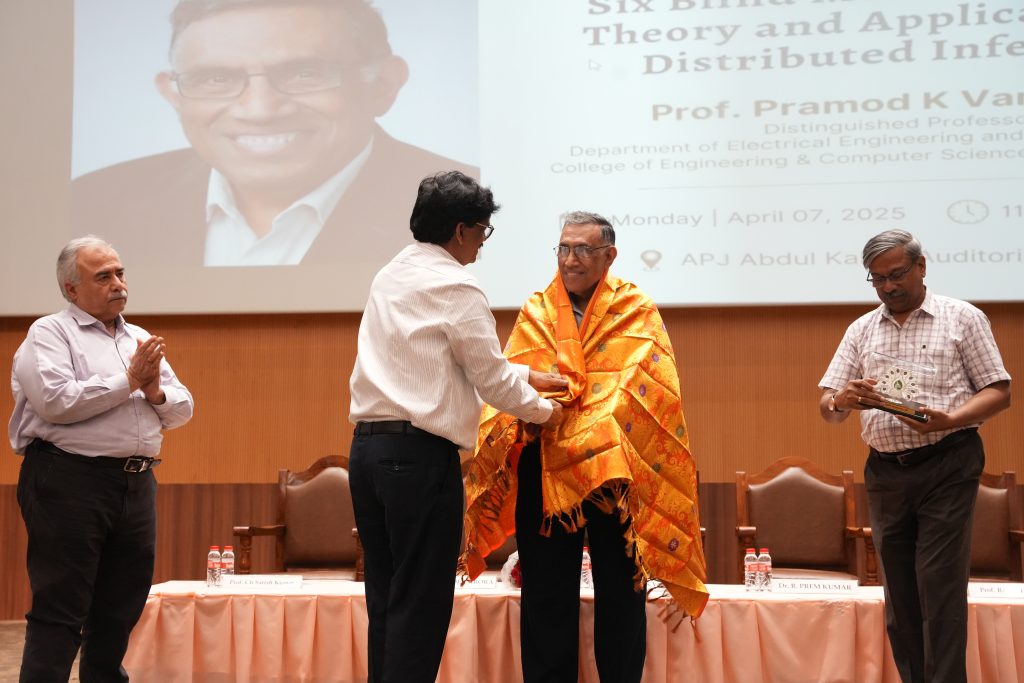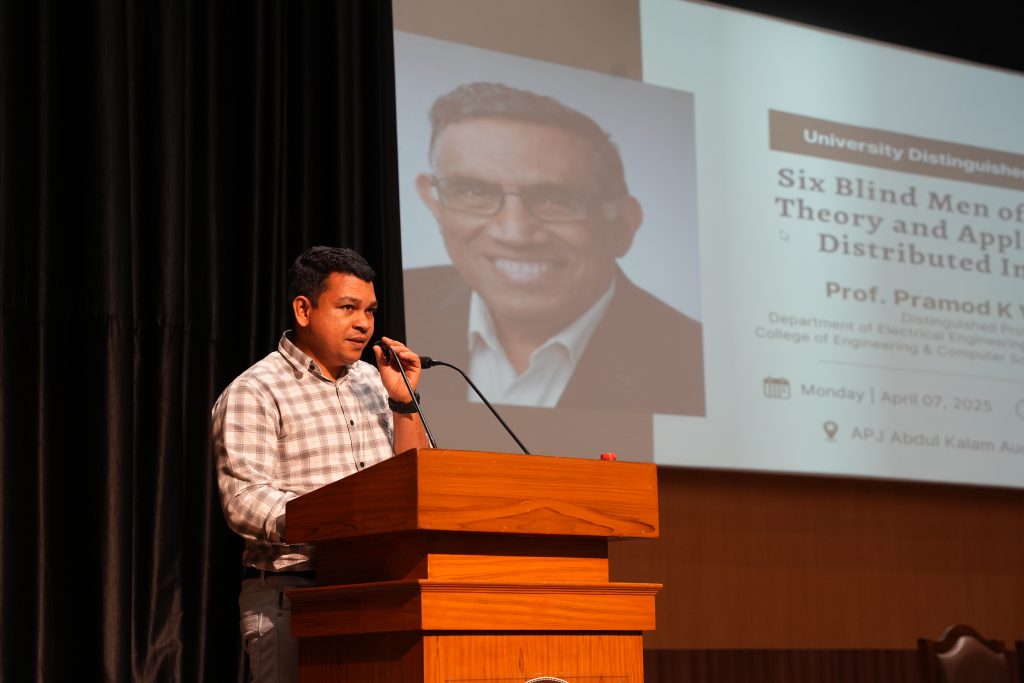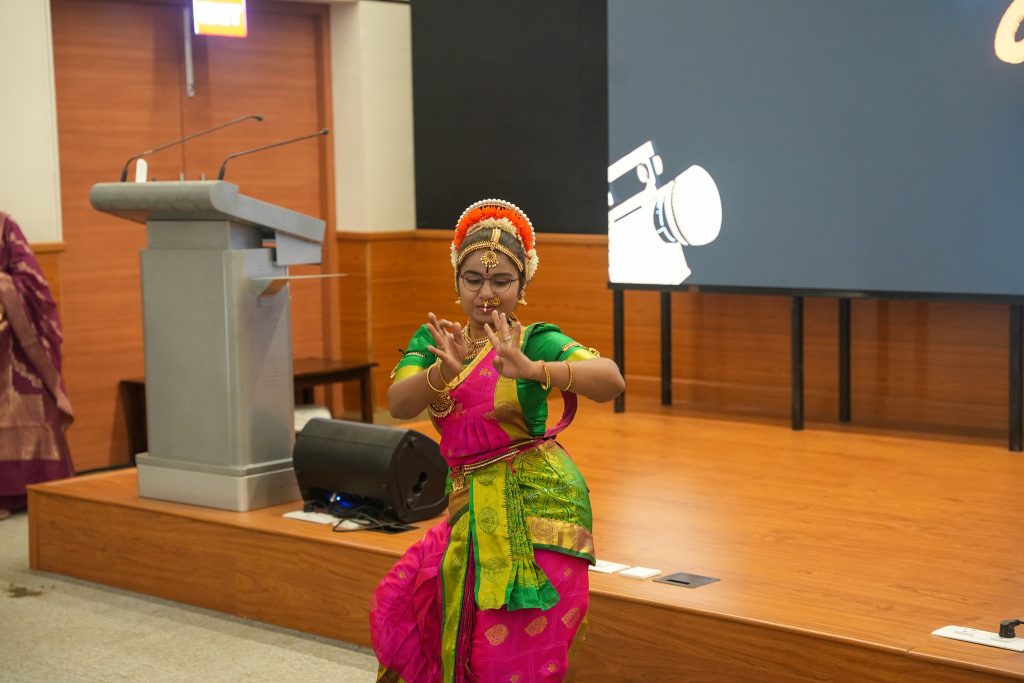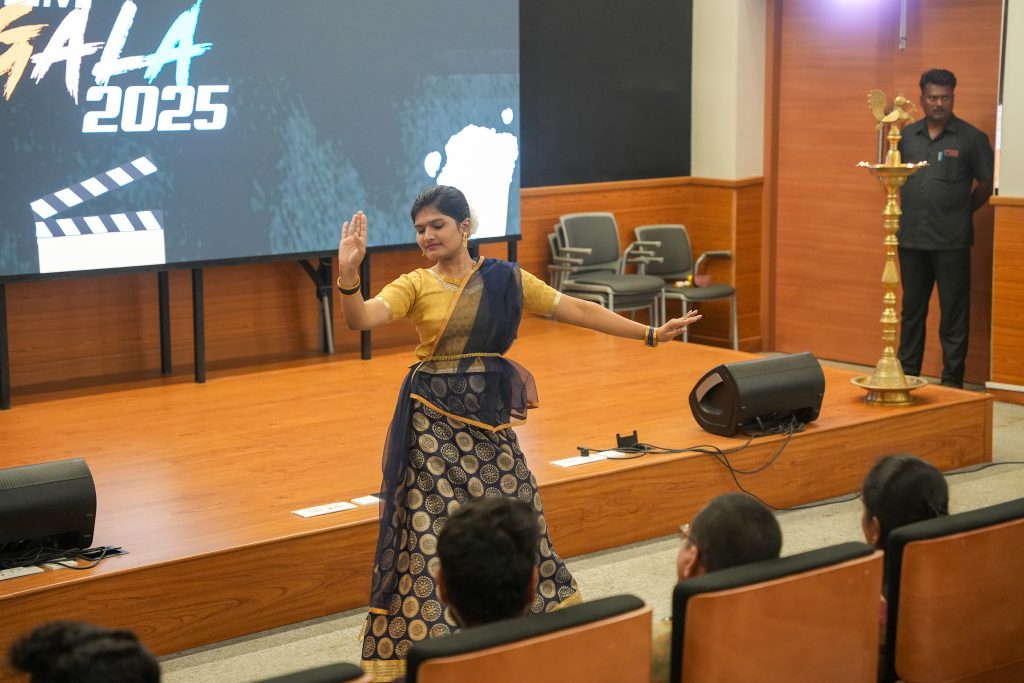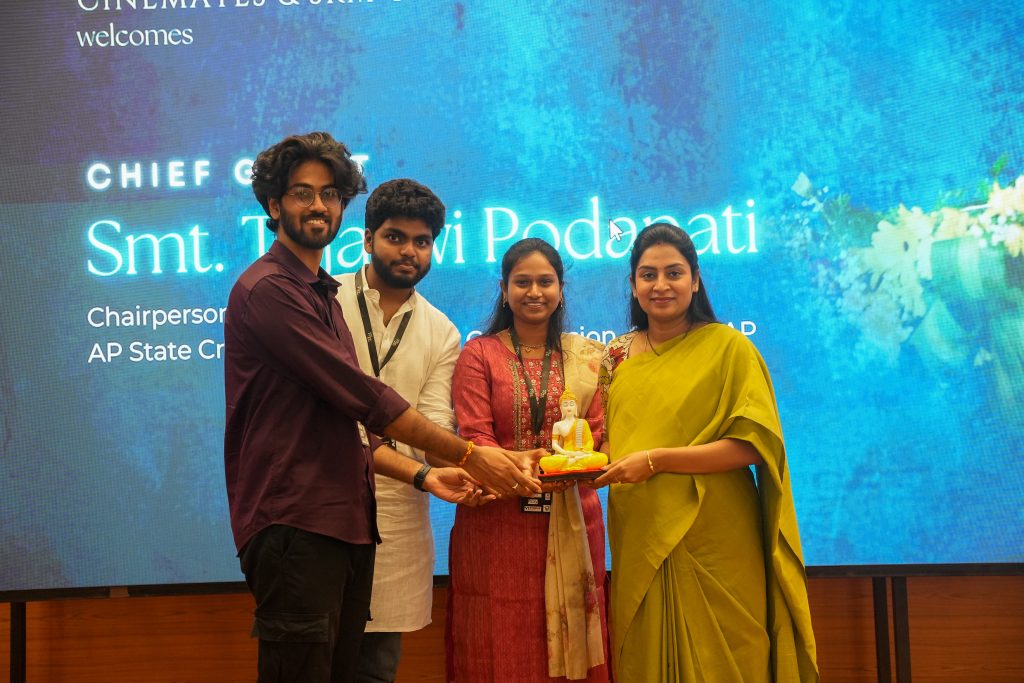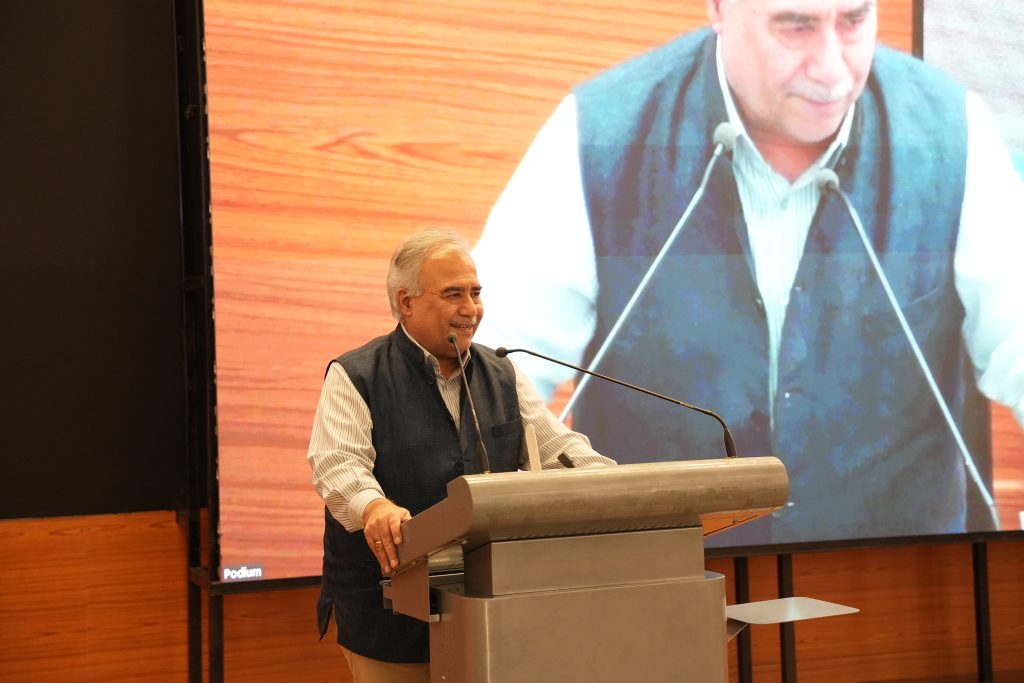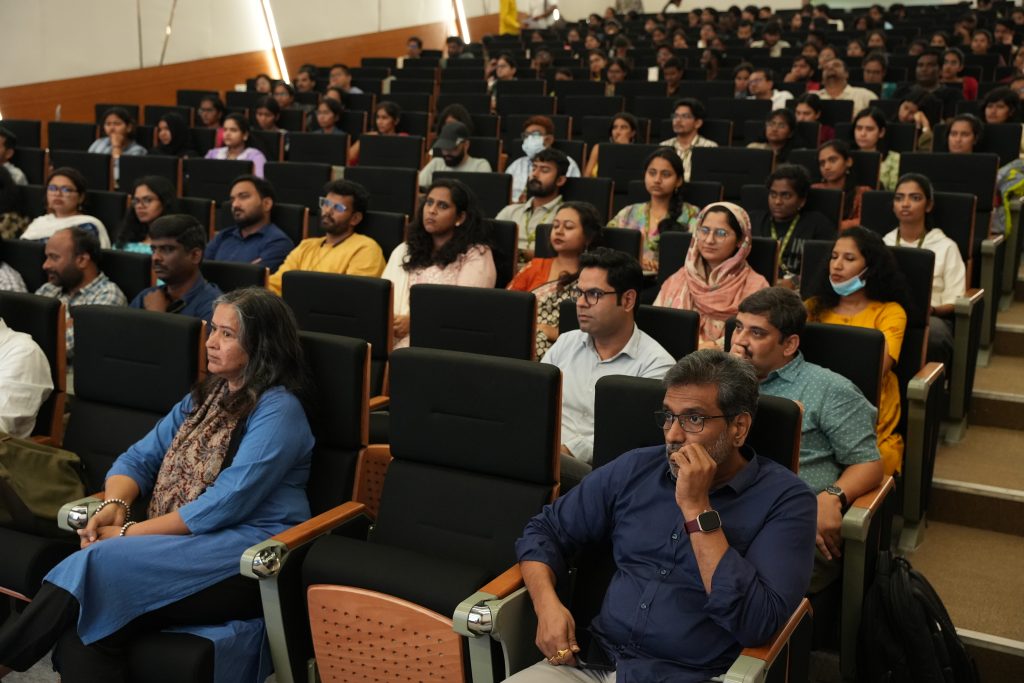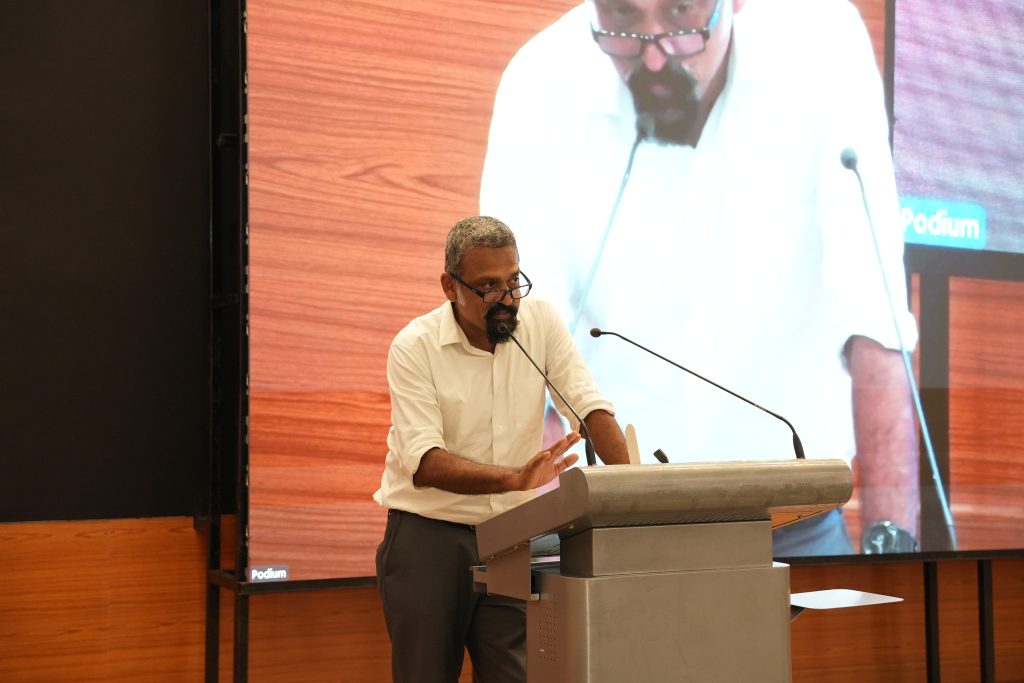Blood Donation Camp Organised at SRM AP

The National Service Scheme (NSS) Cell, in collaboration with the Government Blood Center, Guntur Government Hospital, successfully conducted a blood donation camp on April 10, 2025. The event was formally inaugurated in the esteemed presence of the Honourable Vice Chancellor, Dean of Academic Affairs, and the Director of Student Affairs, who commended the NSS team for this life-saving initiative.
The camp operated from 9:30 AM to 5:30 PM, witnessing impressive participation from students, faculty, and staff members. A remarkable number of units of blood were collected during the event, a testament to the humanitarian spirit and social responsibility fostered within our university.
All donors underwent thorough health screenings conducted by medical personnel from the Government Blood Center to ensure eligibility based on factors like age, weight, haemoglobin levels, blood pressure, and general wellness. Strict hygiene and safety protocols were followed throughout the donation process.
The donors received Certificates of Appreciation from the Government Blood Centre, GGH Guntur, for their voluntary donations and splendid social service. Their participation reflected the selfless commitment that defined the camp’s success.
This initiative not only addressed critical healthcare needs but also served as a powerful reminder of the profound impact a single act of kindness can have on countless lives. Each donor who stepped forward embodied the spirit of service and solidarity that defines our university community. The overwhelming participation and enthusiasm reaffirmed the belief that even a small gesture when multiplied by many, can become a force of immense compassion and change.
- Published in Departmental News, News, student affairs news, Students Affairs Events
“Original Creative Research Will Outsmart AI” – Prof. Ganguli Addresses SRM AP on the 9th Research Day
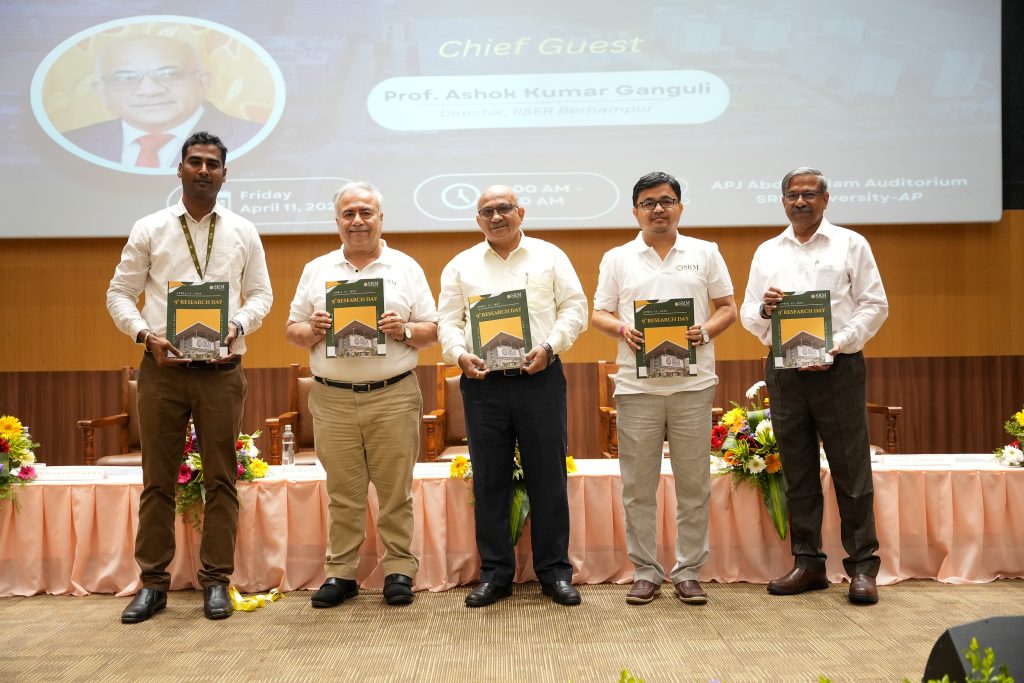
SRM University-AP commemorated its signature event, Research Day Ninth edition, on April 11, 2025, celebrating the relentless spirit of enquiry, excellence and innovation. The esteemed event witnessed the gracious presence of Prof. Ashok K Ganguli, Director-IISER Berhampur, Odisha, as the chief guest along with the university leadership Vice Chancellor, Prof. Manoj K Arora, Registrar Dr R Premkumar, Dean-Research Prof. Ranjit Thapa, Research Day Convenor Dr Sunil Chinnadurai, Deans of other schools, faculty, staff and students.
In his welcome address, Prof. Manoj Arora elucidated the significance of research and innovation in the university’s academic structure and plan to achieve institutional excellence. He stated, “Research Day is fundamentally a platform to identify talented students who have the potential to work on innovative ideas that can be implemented to benefit society.” He also mentioned the future prospects of establishing a Ratan Tata Innovation Hub in Amaravati, where SRM AP will play a pivotal role in one of the five spokes.
Prof. Ganguli, an experienced researcher and scientist, appreciated Research Day as a pioneering initiative by SRM AP to promote a vibrant research culture across all academic levels. He said, “With a faculty pool with excellent pedigree, international exposure and a strong research acumen, SRM University-AP is on the right path to academic and research excellence.” He also discussed the transformation of teaching and research in the future years, emphasising that in the era of the AI revolution, novel, innovative research and creativity will triumph over robotic intelligence.
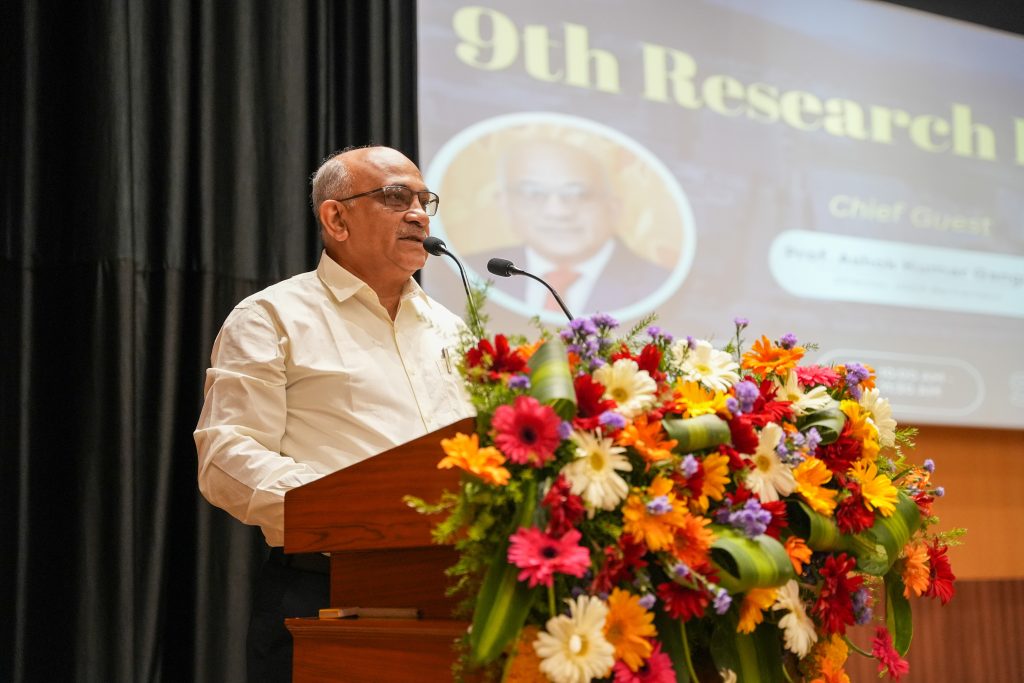
The event revealed the abstract book comprising 263 UG/PG and 131 PhD abstracts in more than 30 thematic areas. 17 students were awarded gold medals, and 5 were awarded silver medals in the UG/PG category. In the PhD category, 10 scholars won the gold medals, and 5 won the silver medals.
For their outstanding contribution to cutting-edge research, selected faculty members of SRM AP were recognised with Best Researcher Awards. Dr Pardha Saradhi M was honoured with the Best Experimental Researcher Award, Dr Murali Krishna E with the Best Theoretical Researcher Award, Dr Dinesh Reddy V with the Best Industrial Researcher Award and Dr Harish Puppala with the Best Young Researcher Award. The faculty were felicitated with a memento and a cash prize of Rs 50,000/- for their high-quality research.
The 9th Research Day has successfully concluded, celebrating talent, perseverance, and innovation. With an unwavering commitment to interdisciplinary research and international collaborations, SRM University-AP advances to the frontiers of academic and research excellence.
- Published in News, Research Events, Research News, University Event
Insights from Prof. Pramod K Varshney at UDL #21
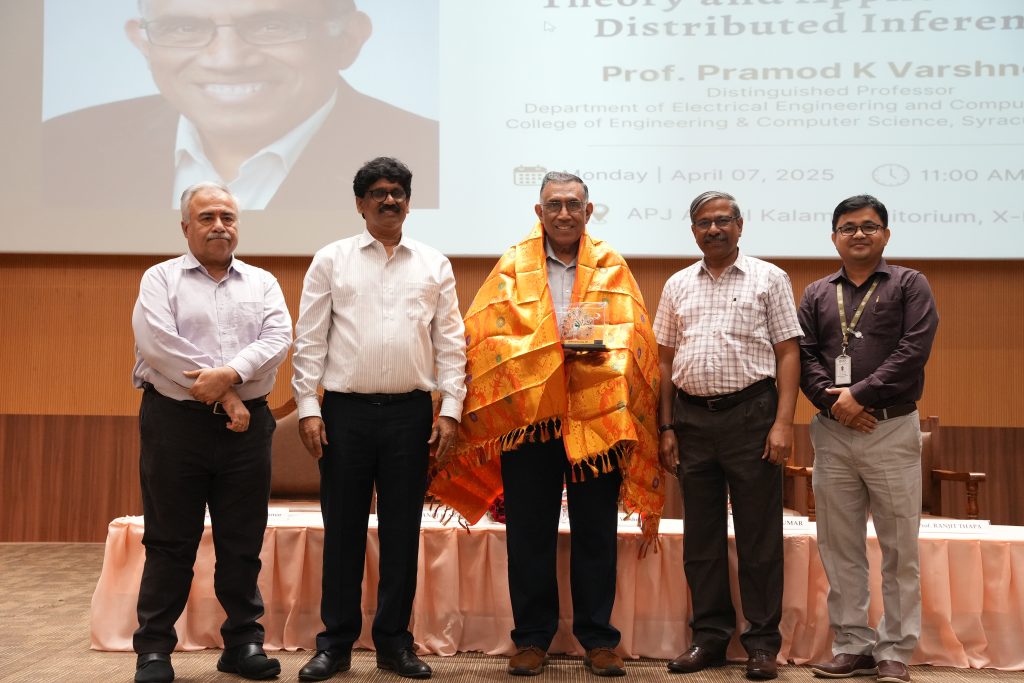 “Major Breakthroughs Are Realised When Your Approach Is Multidisciplinary” – Prof. Pramod K Varshney
“Major Breakthroughs Are Realised When Your Approach Is Multidisciplinary” – Prof. Pramod K Varshney
SRM University-AP hosted the 21st edition of its University Distinguished Lecture (UDL #21). The coveted event saw the presence of the distinguished speaker Prof. Pramod K Varshney from the Department of Electrical Engineering and Computer Science, College of Engineering and Computer Science, Syracuse University, New York. The title of UDL 21, “Six Blind Men of Indostan: Theory and Application of Distributed Inference” elaborated on the use of sensors to collect data and its application in the areas of Security, Surveillance, Disease Detection, Military services and so on.
UDL #21 saw the presence of university leadership including Vice Chancellor, Prof. Manoj K Arora; Pro-Vice Chancellor Prof. Ch Satish Kumar; Registrar Dr R Premkumar; Dean-Research Prof. Ranjith Thapa, Deans of the three schools; faculty members; staff and students.
In his address, Prof. Arora lauded Prof. Varshney for his exceptional scholarship that goes beyond academia. He identified him as a great scholar and poetry enthusiast. Prof. Manoj K Arora underscored the importance of applying one’s research to real-world applications. He urged the attendees to integrate governance, industry, and academia to create wonders.
Prof. Pramod Varshney’s expertise in Signal Processing and Wireless Communications has helped in making remarkable contributions. During the lecture Prof. Varshney used the analogy of the blind men that described the elephant as various things. He stated that sensors are like blind men, their field of view is limited; the collective data inferred is then used to make decisions where the doctor tries to figure out the disease, the military commander on the action to take and so on.
Prof. Varshney also elaborated on how humans are also like sensors, sensors that work on biases. He stated that his research got him to experiment in diverse areas. He encouraged students to look for novel and innovative ideas to work on because “Major breakthroughs are realised when your approach is multidisciplinary.”
The session was followed by a ‘Q and A’ from students and faculty and culminated with the members of the leadership felicitating Prof. Varshney.
- Published in Departmental News, News, Research News, University Distinguished Lecture
Film Gala 2025: Exploring Novel Media of Storytelling
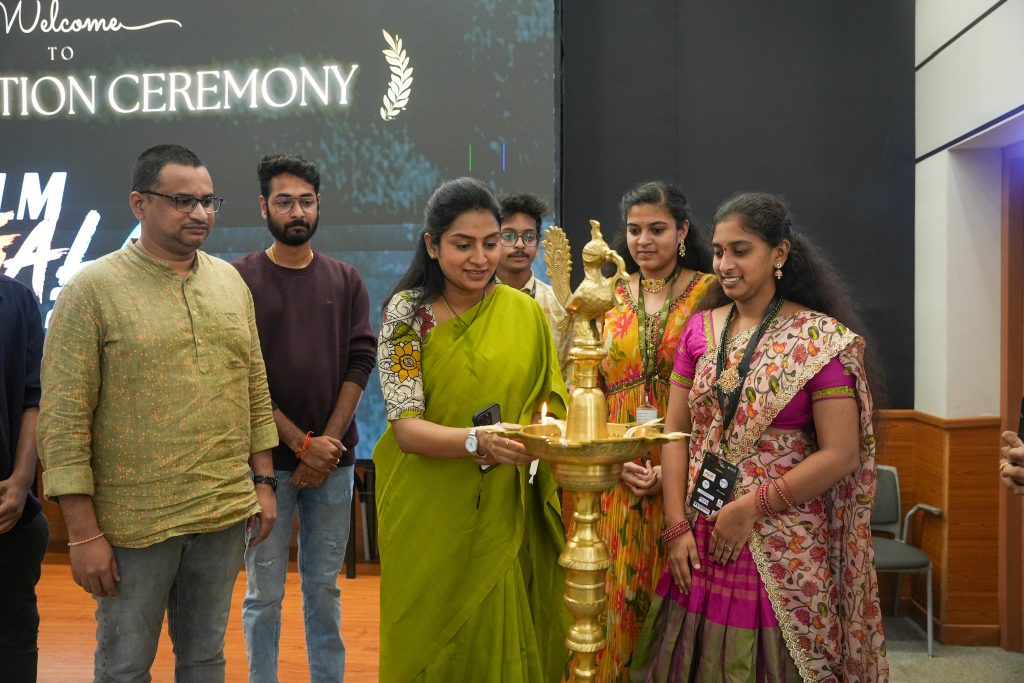
The Film Gala 2025, organised by the CineMates Club of SRM AP, was inaugurated with a formal ceremony that marked a prestigious two-day celebration dedicated to the art of cinema, narrative excellence, and creative expression. This distinguished event established a professional forum for filmmakers, artists, and cinema enthusiasts from across the nation to participate in intellectual discourse, competitive showcases, and cultural exhibitions.
The ceremony was honoured by the presence of Mrs Tejaswi Podapati Macharapu, Chairperson of the AP State Creativity and Culture Commission, Government of Andhra Pradesh, who served as the Chief Guest. She was accompanied by Mr Sujith Kalluri, Chief Club Advisors, distinguished faculty members, Founders and Alumni of CineMates, and official representatives from the organising committee.
The keynote address by Chief Guest Mrs Tejaswi Podapati Macharapu constituted the ceremony’s centrepiece. She delivered a comprehensive discourse on cinema’s transformative role in contemporary society. Drawing from her academic experiences, she emphasised the importance of integrating creative pursuits with scholastic endeavours. Mrs Tejaswi noted that India maintains its position as the world’s foremost film-producing nation, with an annual output exceeding 2,000 cinematic productions, thereby presenting substantial opportunities for aspiring filmmakers. She further emphasised that students from diverse academic disciplines, including engineering, possess the analytical acumen and creative capabilities necessary for success in the film industry.
To reinforce her message, Mrs Tejaswi referenced distinguished individuals from various professional domains, including politics, athletics, and the arts, underscoring how perseverance and passion are fundamental elements of professional achievement. She concluded her address by expressing admiration for the Film Gala’s established legacy and commended SRM AP for its institutional commitment to advancing artistic initiatives.
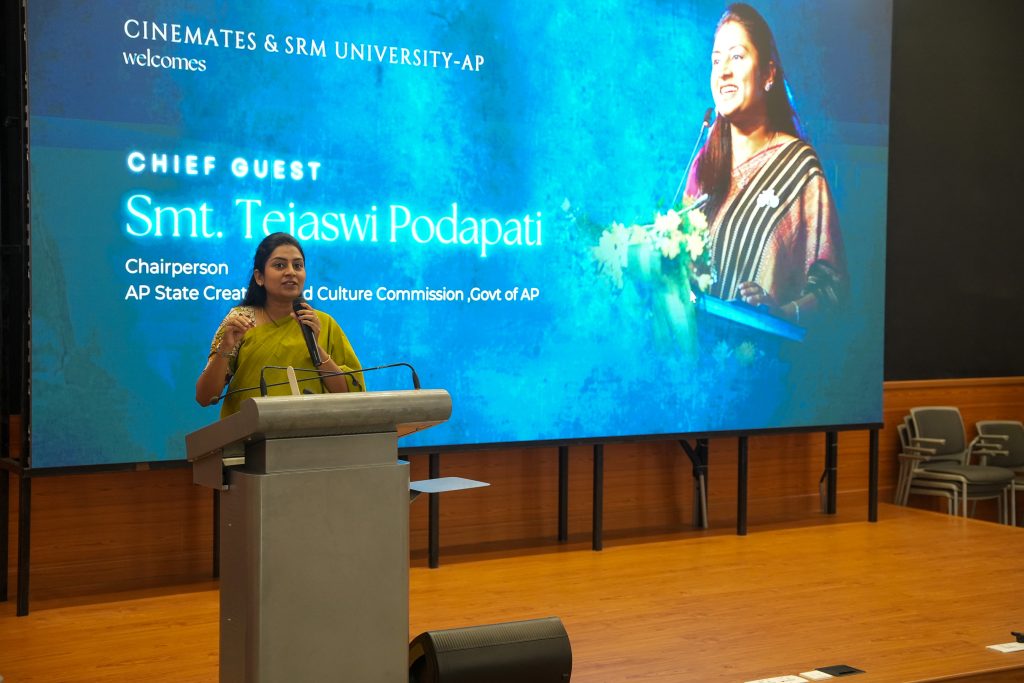
The ceremony featured classical dance performances by Ms. Preeti and Ms. Deepthi, who demonstrated the artistic interpretation of narrative through choreographed movement, exemplifying the intersection of traditional cultural expression and contemporary storytelling techniques.
A significant component of the inauguration was the formal announcement of the 24-Hour Filmmaking and Editing Challenges. The Visual Chase competition specified that participants create a two-minute video exploring the theme “Nature Speaks to Me,” while the Classic Cut competition challenged contestants to produce a trailer for the film ‘Kalki 2898 A.D.,’ with a maximum duration of 2 minutes and 30 seconds.
The inaugural ceremony concluded with a comprehensive presentation of the day’s scheduled activities, including curated short film screenings, a poetry recitation session, and an evening film presentation. The enthusiastic participation from attendees signified the successful launch of Film Gala 2025, establishing an auspicious foundation for what promised to be an intellectually stimulating and culturally enriching festival.
The event received generous sponsorship from esteemed organisations including Sastri Balm, AWEC Consultancy, IVY Overseas, ATHER, Vastrakala Shopping Mall, Picxy, Harivillu Promoters and Developers Pvt. Ltd., V1 Overseas Careers Pvt. Ltd., and GTR Solar Power. Their valued support facilitated the creation of a platform where emerging talents could demonstrate their artistic vision and technical expertise.
- Published in Departmental News, News, student affairs news, Students Affairs Events
Padmashri Prof. Shanti Sinha Discuss Child Labour and Child Rights in India at UDL#20
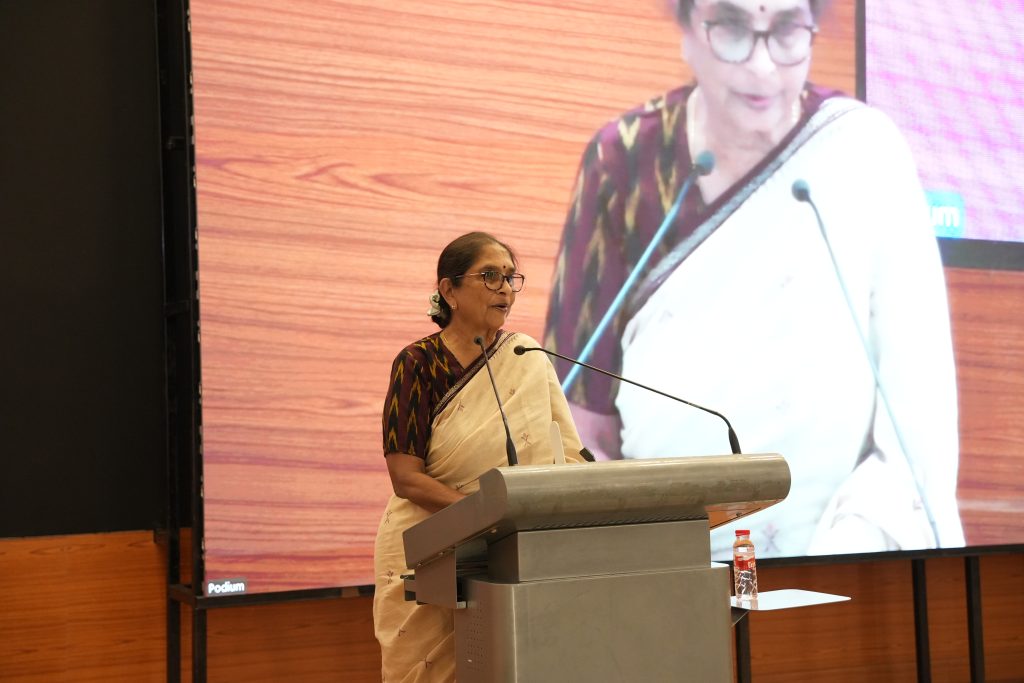
“Every Child Out of School is in Child Labour. Education, Education and Education alone is the Way Forward for a Progressing India.” – Prof. Shanti Sinha
The twentieth edition of the University Distinguished Lecture (UDL) on February 21, 2025, witnessed an invigorating session by the eminent anti-child labour activist Padma Shri Prof. Shanta Sinha, Ramon Magsaysay Awardee, Former Chairperson of the National Commission for Protection of Child Rights (NCPCR), and Professor (Retd.) Dept. of Political Science, Hyderabad Central University. The session on the topic “Making Education a Reality and Ending Child Labour: Experience of M.V. Foundation” gave an overview of the work of M.V. Foundation in the field of child rights in India.
In a society ravaged by poverty, where children were forced to join the bonded labour workforce, Prof. Sinha remarked that it was not poverty that led to child labour but child labour that led to poverty. Prof. Sinha elucidated on the non-negotiable principle adopted by the M.V. Foundation, that ‘no child must work, and every child must attend full-time formal day school,’ which broke the societal norms of Indian society.
She briefly spoke about the impact that the M.V. Foundation had and the ripple it created in the field of child rights. “M.V. Foundation has withdrawn over 15 lakh children in the age group of 5-14 years from child labour; stopped over 20,000 child marriages and pioneered a program for mainstreaming children to schools through residential bridge courses. The MVF’s mission to abolish child labour also led to the Closure of Night Schools and the creation of necessary amendments in the Child Labour Act of 1986,” stated Prof. Sinha.
The session also discussed Prof. Sinha’s Journey at the National Commission for Protection of Child Rights (NCPCR), and the various challenges faced in addressing key issues such as violation of children’s rights in relation to child labour and child trafficking, rights of children in areas of civil unrest, juvenile justice system, corporal punishment, child abuse and violence on children, and child malnutrition.
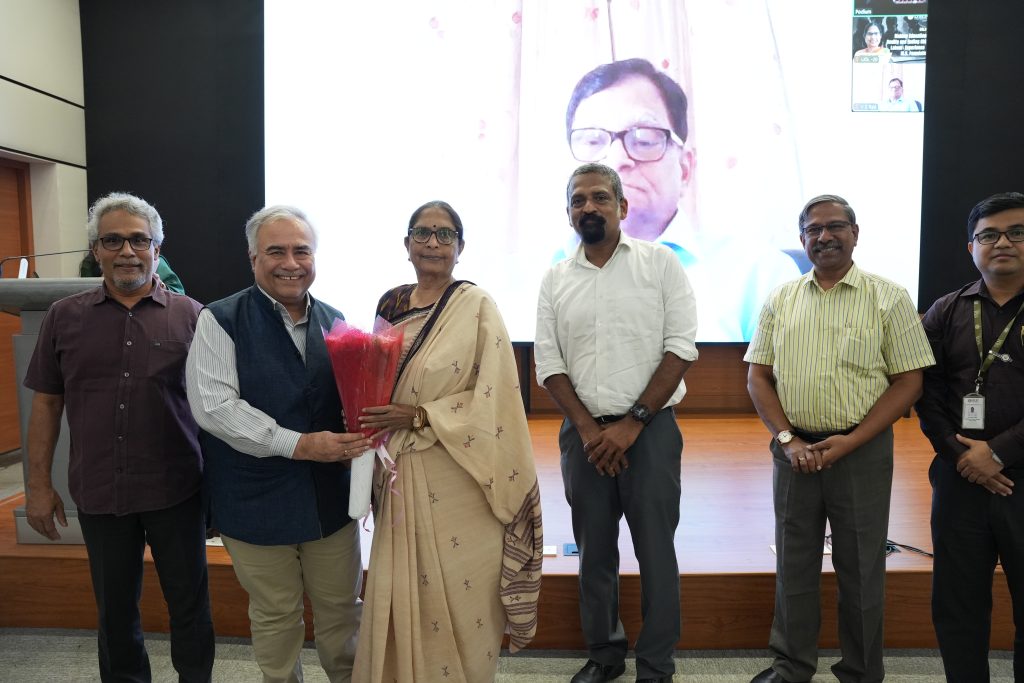
The UDL 20 was a mind opener and a lens into the reality of child labour still prevalent in India. Prof. Manoj K Arora, Vice Chancellor of SRM University-AP, expressed his gratitude to have the presence of a torchbearer of social reform at the UDL. He stated, “Prof. Sinha is a stalwart whose work has created a magnitudinal shift in the societal norm, significantly contributing to the abolition of child labour in India. We are grateful to imbibe from her knowledge and experience as a social leader.” Dean of Easwari School of Liberal Arts, Prof. Vishnupad, also expressed his heartfelt appreciation for Prof. Sinha’s presence and her work. He stated that the thought-provoking and inspiring session will ignite students to think in a ‘non-conventional’ way and offer courage to make a change.
The 20th UDL was organised under the aegis of the Office of Dean-Research, the UDL committee, and the Easwari School of Liberal Arts. It witnessed the presence of Registrar Dr R Premkumar, Dean of the School of Engineering and Sciences, Prof C V Tomy, Dean of Research, Prof. Ranjit Thapa, and Faculty and students of the varsity. The signature lecture series is the university’s flagship initiative to impart global exposure and quality education to its students.





